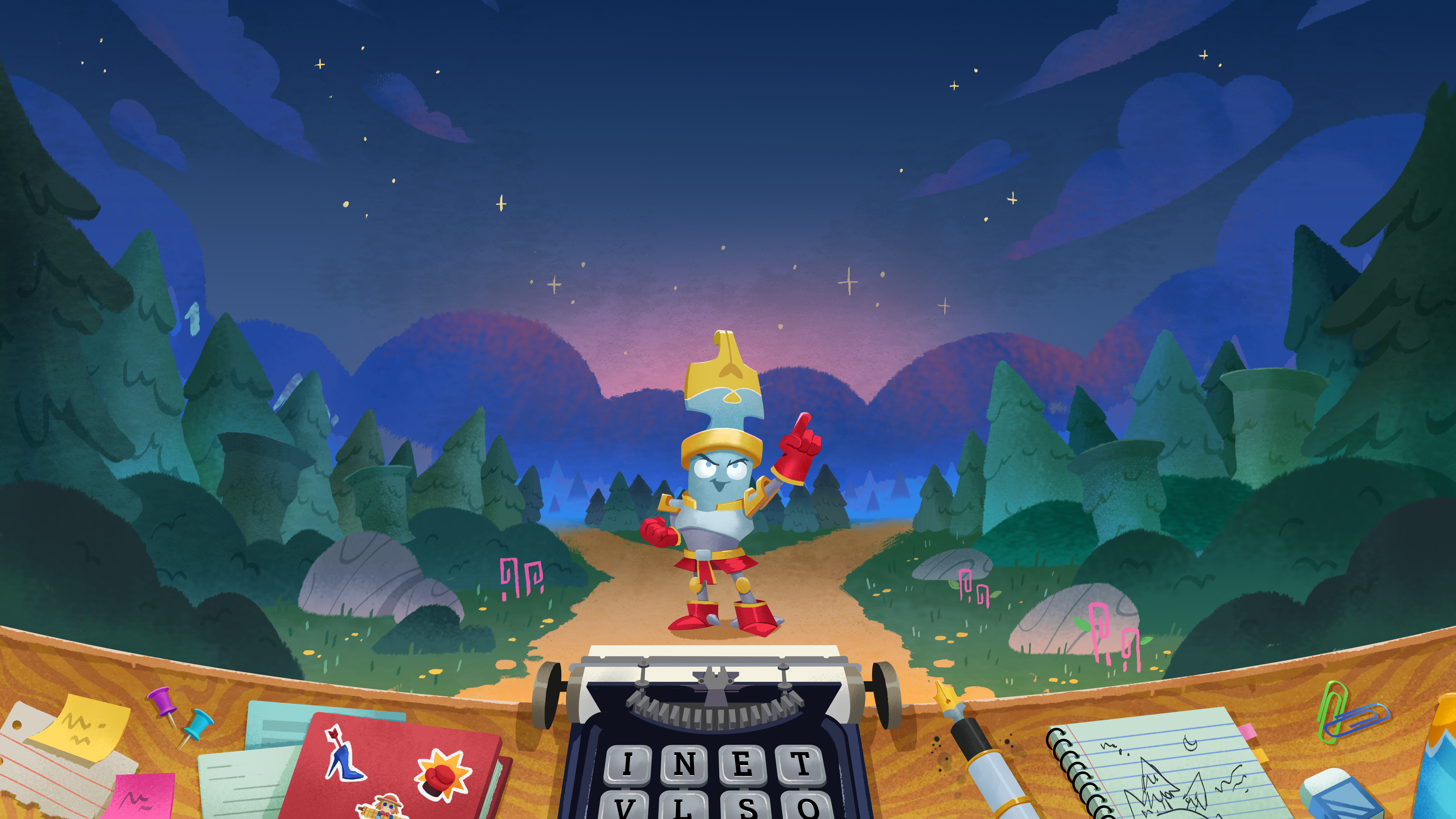Everyone has their own methods of defeating writer’s block. Some use drugs recreationally, some go outside and spend time in nature, and some do something completely different. TicToc Games’ Writer’s Block, is quite literally centered around it, but has a very unique approach to its depiction as a puzzle to be solved like a word game, as well as what it takes to conquer it.
 Each of your enemies is modeled after something from the main character’s life, whether it be an automobile turned into a billy goat, an evil coffee-to-go cup, or even a malicious bubble. Enemy encounters take place on four by four grids, with a random assortment of sixteen letters among it. From here, you’re tasked to make words out of the jumble to attack the foe, the longer the words are, the more damage you do. As you slowly piece together a small word, you can see multiple combinations of longer words that allow you to do more damage. There is a lot of gratification to be had when you string along a long word that does massive damage.
Each of your enemies is modeled after something from the main character’s life, whether it be an automobile turned into a billy goat, an evil coffee-to-go cup, or even a malicious bubble. Enemy encounters take place on four by four grids, with a random assortment of sixteen letters among it. From here, you’re tasked to make words out of the jumble to attack the foe, the longer the words are, the more damage you do. As you slowly piece together a small word, you can see multiple combinations of longer words that allow you to do more damage. There is a lot of gratification to be had when you string along a long word that does massive damage.
Writer’s Block’s letter-slinging combat doesn’t stop just as making words. There are randomly spawned debuffs that your foes can place on you to limit your letter choice. Or you can use an item, aptly named Literary Devices, which enhance certain letters through buffs also limiting which letters you can use. Some of the Literary Devices have uses which recharge an initial use and others work as a passive buff. When you use these items in moments of play, they force you to make an important choice. Do you opt to do a lot of damage to your foe while taking some as well, or do you play it safe and remove some de-buffs off the choice of letters and try to do some a meager amount of damage to the enemy? This is a very thin line to walk, especially as you get deeper into a run and figuring out a rhythm with your respective literary devices. Runs can be slow going at the start, as you see the words come alive in front of you. Three to four letter words slowly transform into six to eight letter words, and the game slowly begins to train your brain to see words come alive and augment the way your run goes.
Some of the most fun to be had in Writer’s Block is in the special encounters. A true test of your mental dictionary, each one presented with the same four by four square of randomly generated letters, the catch being that the longer the words you make allows for you to gain more literary devices you can have in your journey to conquer the true actual writer’s block. These special encounters run the gamut; they can be either you fishing for items, sneaking into an enemy stronghold, or even chasing a unicorn in a forest!
 Each enemy has its own ways to attack you and as you find your letter choice limited by their specific movesets, you find creative ways to deal with them, and form words that you didn’t even know existed. The game is engaging and wants you to not move at a rapid pace, instead it wants you to slow down and analyze the scenario, and this decision is incredibly deliberate given the more fast paced nature of other rogue-like games. This more slowed down pace is incredibly refreshing and wants you to engage with the systems more than anything.
Each enemy has its own ways to attack you and as you find your letter choice limited by their specific movesets, you find creative ways to deal with them, and form words that you didn’t even know existed. The game is engaging and wants you to not move at a rapid pace, instead it wants you to slow down and analyze the scenario, and this decision is incredibly deliberate given the more fast paced nature of other rogue-like games. This more slowed down pace is incredibly refreshing and wants you to engage with the systems more than anything.
Writer’s Block is a very deliberate game, it is something that wants you to engage with it on it’s own level. It is not super difficult, but there is a challenge to it and it is not your normal challenge in rogue-like games. It wants you to think and be patient with it, not call for split-second decisions. By forcing you to engage with certain letters, you have to react on the fly and also think about each word and letter that you want to play. Each run is fun and enhances the last one by quite literally expanding your dictionary to use.






